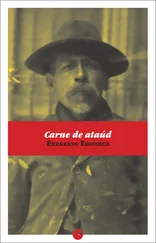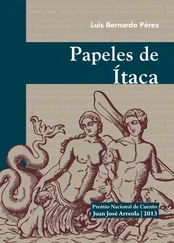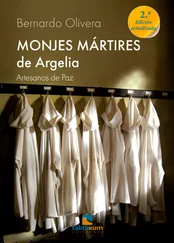Bernardo Atxaga - Obabakoak
Здесь есть возможность читать онлайн «Bernardo Atxaga - Obabakoak» весь текст электронной книги совершенно бесплатно (целиком полную версию без сокращений). В некоторых случаях можно слушать аудио, скачать через торрент в формате fb2 и присутствует краткое содержание. Год выпуска: 2010, Издательство: Graywolf Press, Жанр: Современная проза, на английском языке. Описание произведения, (предисловие) а так же отзывы посетителей доступны на портале библиотеки ЛибКат.
- Название:Obabakoak
- Автор:
- Издательство:Graywolf Press
- Жанр:
- Год:2010
- ISBN:нет данных
- Рейтинг книги:3 / 5. Голосов: 1
-
Избранное:Добавить в избранное
- Отзывы:
-
Ваша оценка:
- 60
- 1
- 2
- 3
- 4
- 5
Obabakoak: краткое содержание, описание и аннотация
Предлагаем к чтению аннотацию, описание, краткое содержание или предисловие (зависит от того, что написал сам автор книги «Obabakoak»). Если вы не нашли необходимую информацию о книге — напишите в комментариях, мы постараемся отыскать её.
Obabakoak
The Observer
Obabakoak — читать онлайн бесплатно полную книгу (весь текст) целиком
Ниже представлен текст книги, разбитый по страницам. Система сохранения места последней прочитанной страницы, позволяет с удобством читать онлайн бесплатно книгу «Obabakoak», без необходимости каждый раз заново искать на чём Вы остановились. Поставьте закладку, и сможете в любой момент перейти на страницу, на которой закончили чтение.
Интервал:
Закладка:
“Do you know when the word desolation first came into use?” I heard him say as I walked across the portico.
“No,” I said, stopping.
“In 1612.”
“You shouldn’t be bothering yourself with words like that,” I said.
He smiled, then closed the door.
The following spring, when I was already far from Villamediana, I received a letter from Daniel. It began with a joke, assuring me that the village girls had been most upset by my departure and all sent me their love. Toward the tenth line, however, the tone changed. “I have something else to tell you. The dwarf’s cat belongs to me now,” he wrote. And what I read from then on only confirmed what I’d suspected on that last visit.
7. All the young girls from Villamediana lived in other towns or villages, either studying or working as maids, and they only came back to their parents’ house during the holidays. As Daniel said, “It just wasn’t fair,” the young men of the village lacked opportunities for romance.
However, there were others who could take their place and of them, Rosi was the one who best filled the void left by the young girls. Although she was nearly forty, she knocked ten years off nature by sheer willpower, a miracle made possible by the fact that she still considered herself to be of marriageable age. In the village they called her Rita Hayworth — behind her back, of course — and she always wore gay, flowery dresses.
She was from quite a rich family, the owners of a market garden, and was in charge of selling the produce and dealing with the customers, spending her days among the carrots and sacks of potatoes in a place that was half-warehouse, half-shop. She moved gracefully through this world, not allowing the rustic nature of her surroundings to influence the care she took over her appearance; she seemed more like an air hostess than a shopkeeper. I never saw her with a hair out of place, a button undone, or a wrinkle in her colored stockings.
“Now how may I be of assistance to you?” she would ask whenever I went to buy something there. She favored such polite, roundabout phrases.
Sometimes I had the feeling that it hurt Rosi having to sell those rough products of the earth and that she envied the owners of the shop in the square, who, thanks to a refrigerator, sold a different kind of product, for example, butter and yogurt, “a better class of product” to use her own words.
Perhaps driven by such feelings, she was constantly sweeping and dusting the shop to expunge every last trace of soil that might be clinging to the beetroot, so that no one could ever say that in Rosi’s shop they’d once stepped on a rotten apple, and so that her counter was as highly polished as a jeweler’s.
Sometimes she’d sit down at the shop door, quite still, and gaze out at the main road. When would she get the chance to change her surroundings? Sad to say, never. She was irremediably tied to those vegetables. She couldn’t just abandon her family. After all, someone had to look after her father, the old market gardener.
“Rosi asked me an odd question today,” Tassis said to me once, having first explained to me that the word shop came from scopf meaning “ porch. ” “She asked me how long it would take the average family to get through a bottle of tomato concentrate.”
“And what did you say?”
“I said it would probably last a family about a week. Well, I had to say something.”
“It’s not really such an odd question. I don’t know, maybe she wants to start stocking some new products. She’s always saying how fed up she is with selling potatoes.”
“I don’t think I’ve made myself quite clear. An unforgiveable error,” admitted Tassis in his usual acid tones. “To tell the truth, what was odd wasn’t the question so much as what she did afterward. She started making calculations about how many bottles there were to a crate and all that and then she turned to me and said that it would take six months.”
“Six months?”
“That’s just what I said, six months for what? And then she explained that that was how long it would take to sell a whole crate of the stuff in Villamediana.”
“I still don’t see what’s so odd about it,” I said just to provoke him. But he let it pass.
“That wasn’t necessarily so, I said, because if she started selling tomato concentrate to the signals unit on the hill, she’d need much more, at least a crate a week. And when she heard that, she could hardly contain herself for joy.”
“But they don’t buy their supplies in Villamediana,” I said.
“That’s why her behavior seemed so odd to me. Why should that story about the barracks make her so happy? And then I had a hunch,” Tassis continued after a pause. “It seemed to me that the only reason she was asking me that question was because I have no dealings with the other villagers. Not, as a mature person would, because she considers me to be intelligent. I don’t know if you’ve noticed, but Rosi is not the most mature of people.”
For him maturity was a synonym for perfection and he considered its lack, where obvious, to be a grave defect.
Tassis’s hunches were never wrong, still less when, as in this case, they were painful to him. I thought that probably all his assumptions were right. But even so, it was still no more than just another of the many anecdotes, one among hundreds, that came up during our walks and we both soon forgot about it.
However, the things one forgets are never completely lost. They go into hiding somewhere, in some crevice of the memory, and stay there, asleep but not dead. And they can, of course, wake up. Sometimes, a smell is enough to provoke it. At other times, a gesture. What helped me on this occasion was a hat.
I saw a man in a hat standing next to a van and I stood for a while watching him. I thought the hat suited him. He was a tall, good-looking man of about forty-five. “He must be a lawyer,” I said to myself. But no, he most certainly wasn’t; it seems that the van was his. He was just opening the back door.
He emerged bearing a crate embellished with a drawing of a tomato. That was when it all came flooding back to me: what Tassis had told me about Rosi’s odd behavior.
I didn’t really need any confirmation but, nevertheless, I followed him into the shop.
“Ah, there’s our crate!” exclaimed Rosi as soon as she saw the man. She was wearing a print dress in a reddish color and her eyes and lips were discreetly made up. On the counter was a vase of flowers.
“Vitamins for the soldiers,” said the man.
“If you wouldn’t mind waiting just one moment, I’ll serve this other gentleman first,” Rosi said, excusing herself.
“That’s okay, I’m in no hurry,” declared the man, taking out a cigarette.
The back room was in darkness but in its depths I could just make out a pile of something covered with a sheet of white plastic. There, no doubt, lay all the unsold crates of tomato concentrate Rosi had bought.
8. In sunless December, all living things flee the land of Castile, and a man out for his daily constitutional will find no one to accompany him and no one to talk to. He will look ahead of him and to either side but to no avail. The plain is frozen hard, as is the sky, and between the two there is no one, not one arm raised in greeting. The peasant long ago finished preparing the ground for the next sowing, and now he doesn’t even leave the village but passes the day at the bar or by his own fireside. As for the shepherds, there’s no knowing where they’ve gone. There’s not a sign of them anywhere; not in the bars, around the village, not even in the forest. They must be somewhere, of course, but they spend the whole day wrapped in blankets the same color as the earth and it’s as if they’ve become invisible.
Читать дальшеИнтервал:
Закладка:
Похожие книги на «Obabakoak»
Представляем Вашему вниманию похожие книги на «Obabakoak» списком для выбора. Мы отобрали схожую по названию и смыслу литературу в надежде предоставить читателям больше вариантов отыскать новые, интересные, ещё непрочитанные произведения.
Обсуждение, отзывы о книге «Obabakoak» и просто собственные мнения читателей. Оставьте ваши комментарии, напишите, что Вы думаете о произведении, его смысле или главных героях. Укажите что конкретно понравилось, а что нет, и почему Вы так считаете.











